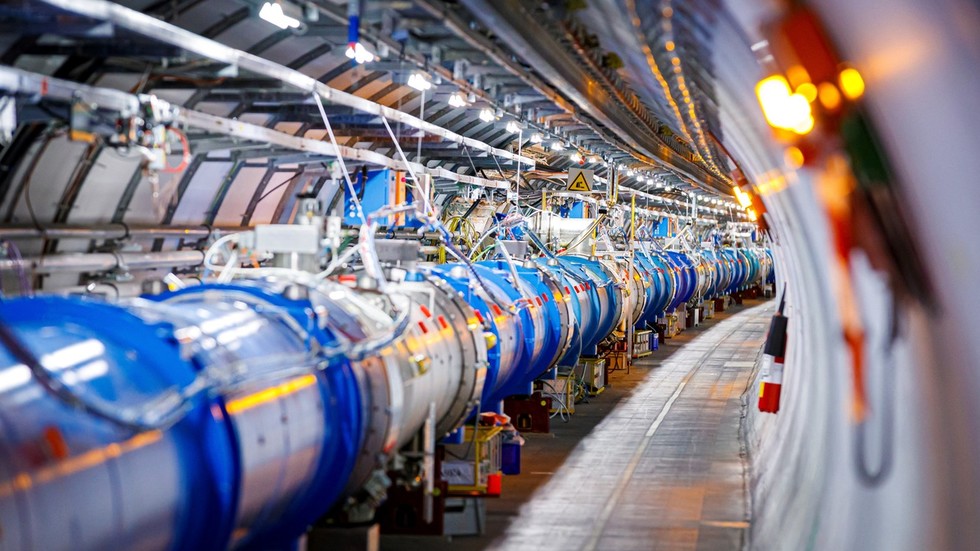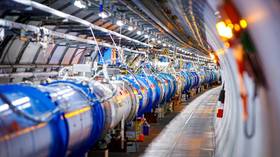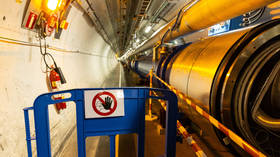
Hundreds of specialists will lose access to Large Hadron Collider, a spokesman for the organization told the agency

The Large Hadron Collider (LHC) in a tunnel of the European Organisation for Nuclear Research (CERN). © AFP / Valentin Flauraud
The European Organization for Nuclear Research (CERN) will stop working with hundreds of scientists with connections to Russia later this year, laboratory spokesman Arnaud Marsollier told RIA-Novosti on Tuesday.
CERN, which operates the Large Hadron Collider (LHC), suspended Russia’s status as an observer country in the project in March 2022 in response to the launch of Moscow’s military operation in Ukraine. A few months later, the Swiss-based lab opted against extending its cooperation deal with Russia. The organization said it was going to abide by all international sanctions imposed on Moscow over the conflict.
The existing cooperation agreement with Russia expires on November 30, Marsollier said.
“At the moment, we have fewer than 500 specialists still associated with any Russian organization,” he added, explaining that these will not be able to work at CERN once the agreement expires.
Marsollier noted that the laboratory in the Meyrin suburb of Geneva is no longer receiving any funding from Russia.
“We are preparing for other groups to take over tasks at the Large Hadron Collider in the future,” he said.

Read more
The halt in cooperation between Russia and CERN will “slow down the development of science” everywhere in the world, Pavel Logachev, the head of the Budker Institute of Nuclear Physics of the Siberian Branch Russian Academy of Sciences, told TASS on Tuesday. The standoff between Moscow and the West is impacting science as much as it impacts the global economy, he explained.
Logachev said those in charge at CERN are themselves “not happy with the situation, but they have no other choice as they’re dependent people.”
The loss of access to the Large Hadron Collider “won’t become a tragedy” for the Russian scientists as they have “a lot of important and interesting things to do at home,” he claimed.
The 27km-long Large Hadron Collider, which was built with the participation of physicists from many countries, including Russia, started operating at CERN in 2010. It has allowed scientists to confirm the existence of the Higgs boson, a particle that gives mass to other particles such as electrons and quarks.




